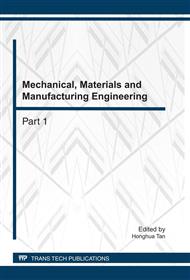p.284
p.289
p.295
p.299
p.307
p.311
p.315
p.319
p.322
Experimental Study on the Atomization Behavior of Fuel Nozzle of Low Pollution
Abstract:
Experimental investigation results of the fuel nozzle group in a heavy-duty gas turbine are presented. Atomization characteristic has great impact about combustion efficiency, ignition performance, and outlet temperature field of combustor. Obtained atomization characteristic about spray particle size and distribution using LDV/PDPA system. These experimental data have provided reliable basis for the nozzle group design, development and operation.
Info:
Periodical:
Pages:
307-310
DOI:
Citation:
Online since:
July 2011
Keywords:
Price:
Сopyright:
© 2011 Trans Tech Publications Ltd. All Rights Reserved
Share:
Citation:


